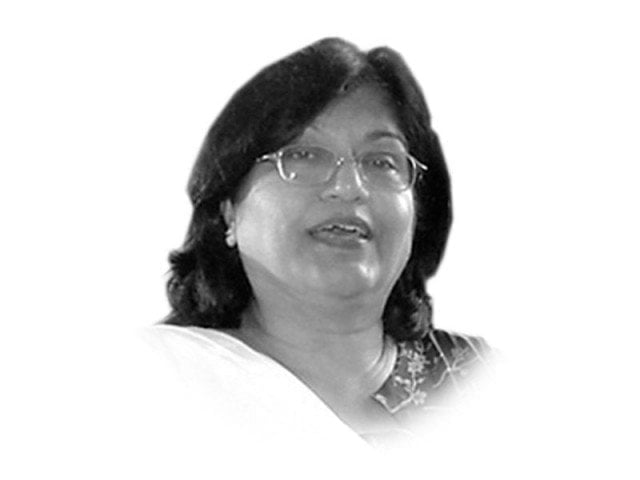How sad it is, to realize that we have hardly had a few years of peace during our five-century national history since independence.
There are always difficult periods in the history of nations, but they continue to march forward in every test they face, they learn from their experiences to avoid repeating the mistakes of the past in the future.
Unfortunately, we are among the few nations who have never bothered to learn anything from their bitter experiences. Immediately after independence, we took a series of misguided decisions in political, legal, administrative and foreign relations that led to an endless series of intermittent and diverse crises that continue to this day.
Since we have been taught, told and told a one-sided picture of history from the beginning, the emerging political leadership of our young generation and the enthusiastic youth of the middle class are unaware of some of our decisions in the early period of the country’s political history. As a result, the country is currently in a state of crisis, so the need of the hour is to highlight the facts of political history which have generally been avoided.
Constitution making should have been our first priority after independence from neo-demographic rule. No recipe has been invented in the world to run a newly created state without a constitution.
Immediately after independence, instead of focusing on constitution-making, reprisals and breach of oath were launched against political opponents. It was not even a year since the birth of the country that Sindh and border provincial governments were abolished and Governor’s rule was imposed on these provinces. Sindh Chief Minister Khan Bahadur Khoro had the support of the Provincial Assembly.
The Sindh Assembly had a unique honor. It was the first assembly of any province in undivided India to pass a resolution in support of the creation of Pakistan on 3 March 1943. It was a time when it was very difficult for anyone to say with certainty that the vision of Pakistan could become a reality.
The mover of this resolution was none other than Mr. GM Syed, who spent almost the rest of his life in prison in the Pakistan of which he was one of the founders.
Not only this but Sindh was the first provincial assembly to formally join Pakistan on June 26, 1947.
On August 22, 1947, the government of Dr. Khan was dismissed in the Frontier Province. Qalat was the state of Balochistan whose chief Khan of Qalat was annexed to Pakistan and also provided financial support to it. He was also forcibly deposed, since then till date this province is suffering from political unrest and peace has not been established here.
Now let us turn to East Bengal of the past i.e. East Pakistan and today’s Bangladesh. Like Sindh, Bengal was the Muslim majority province of India which was at the forefront of the Pakistan movement. Pakistan came into existence on 14 August and in November 1947 Bengali language was not given the status of an official language according to a National Education Conference.
The then Pakistan Public Service Commission removed Bengali from the list of approved subjects. Not only that, but Bengali words were erased from currency notes and postage stamps as well. At that time, the population of Pakistan was 66 million, in which the number of Bengali-speaking Pakistanis was 44 million, and the demand was that Bengali should be included in the official languages of Pakistan.
Against the Bengali language decision, in December 1947, just four months after the creation of Pakistan, a resistance and protest movement started from Dhaka University. See the irony of the situation that the young Bengali Muslims, who were at the forefront of the Pakistan movement until a few months ago, were now suffering from a severe sense of deprivation and were demanding their legitimate rights from their own beloved Muslim leaders. .
Sheikh Mujibur Rahman, who used to be the fiery leader of the Muslim Students Federation, was prominent among these youths, among others.
This long struggle of the students turned into a mass movement and went through various difficult phases and reached its climax on February 21, 1952 when the protesting students and their supporters were fired upon by the police, killing dozens of students. .
After this incident, a series of violent protests started all over East Pakistan, after which Bengali was also constitutionally given the status of national language in the 1956 constitution.
21st February is not only the national day of Bangladesh, but also celebrated as International Mother Language Day by the United Nations Organization UNICEF every year. Awareness should be highlighted regarding the protection of
The effects of this political unrest spreading in the eastern wing of the country began to fall on West Pakistan as well. During 1952 and 1953, a food crisis arose, the student movement began to gain momentum, and after the religious movement, the country’s first martial law was imposed in the city of Lahore.
At that time, Khwaja Nazimuddin was the Prime Minister, he belonged to the family of the Nawab of Dhaka. He studied at Aligarh University and devoted his life to Pakistan Movement. Khawaja Sahib was a very honest and honest person.
Ghulam Muhammad, a shrewd senior officer of the powerful bureaucracy, had occupied the most powerful post of the Governor General till then. Embracing Prime Minister Khawaja Nazimuddin in crises, the Governor General dismissed him along with his cabinet. Look at the amazing “coincidence” that exactly at that time Pakistan’s ambassador to America Muhammad Ali Bogra took the oath of Prime Minister who had come to Pakistan from America in those days.
It should undoubtedly be called the darkest episode in the country’s political history. This third prime minister of the country who took the oath left the field of politics after independence and joined the Ministry of Foreign Affairs. He played a special role in spoiling Pakistan’s relations with the Soviet Union. (to be continued)
(function(d, s, id){
var js, fjs = d.getElementsByTagName(s)[0];
if (d.getElementById(id)) {return;}
js = d.createElement(s); js.id = id;
js.src = “//connect.facebook.net/en_US/sdk.js#xfbml=1&version=v2.3&appId=770767426360150”;
fjs.parentNode.insertBefore(js, fjs);
}(document, ‘script’, ‘facebook-jssdk’));
(function(d, s, id) {
var js, fjs = d.getElementsByTagName(s)[0];
if (d.getElementById(id)) return;
js = d.createElement(s); js.id = id;
js.src = “//connect.facebook.net/en_GB/sdk.js#xfbml=1&version=v2.7”;
fjs.parentNode.insertBefore(js, fjs);
}(document, ‘script’, ‘facebook-jssdk’));



